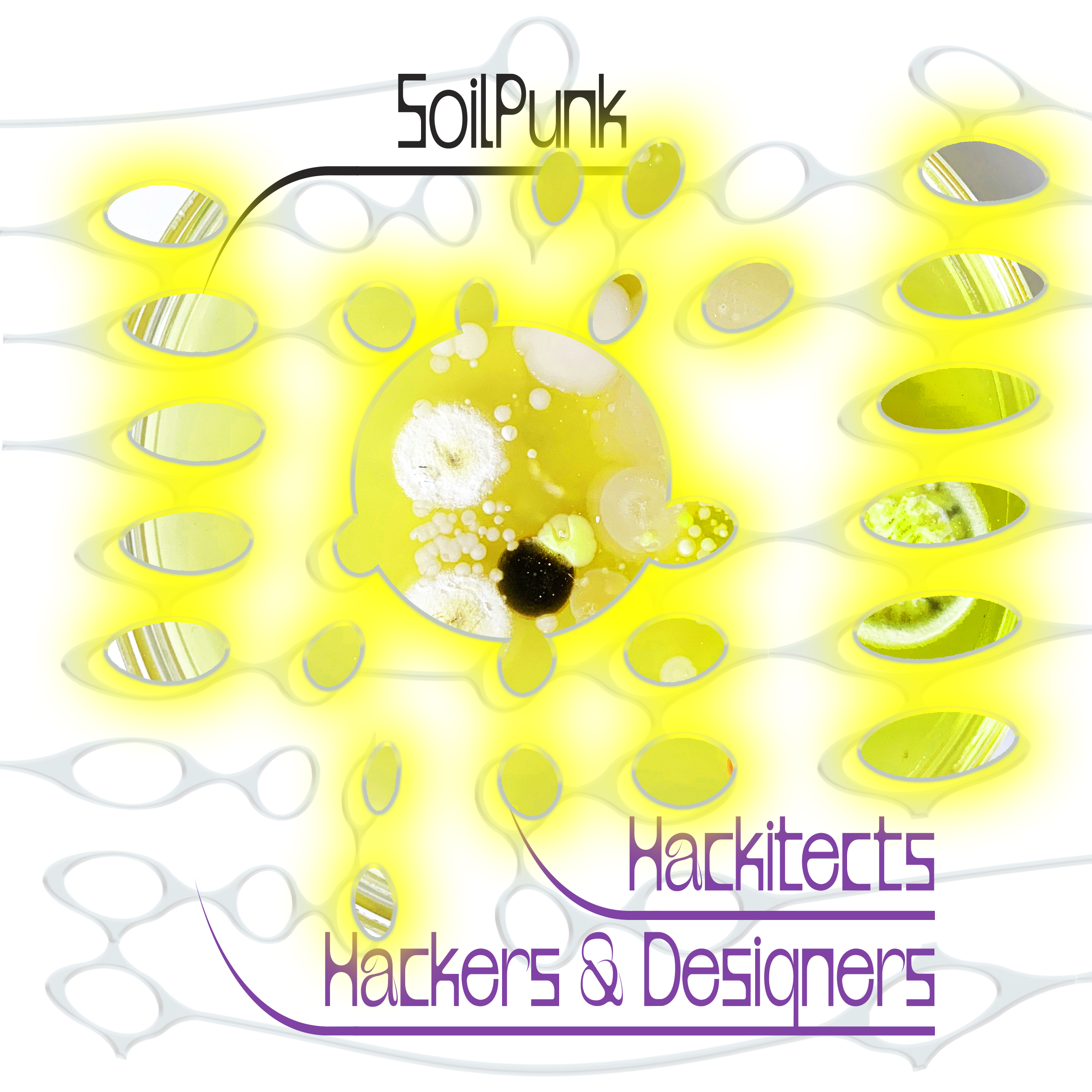SoilPunk with Hackitects x H&D: Difference between revisions
No edit summary |
No edit summary |
||
| Line 16: | Line 16: | ||
''~About H&D and Hackitects~'' | '''~About H&D and Hackitects~''' | ||
''Hackers & Designers''' is a non-profit workshop initiative organizing activities at the intersection of technology, design, art and education. By creating shared moments of hands-on learning H&D stimulates collaboration across disciplines and technological literacy. H&D organizes activities from the idea of a flattened hierarchy. 'Teachers' become participants, participants become workshop leaders – everyone is taken on a collective venture of shared response-ability – bringing in own expertise, urgencies and experiences. | '''Hackers & Designers''' is a non-profit workshop initiative organizing activities at the intersection of technology, design, art and education. By creating shared moments of hands-on learning H&D stimulates collaboration across disciplines and technological literacy. H&D organizes activities from the idea of a flattened hierarchy. 'Teachers' become participants, participants become workshop leaders – everyone is taken on a collective venture of shared response-ability – bringing in own expertise, urgencies and experiences. | ||
''Hackitects Collective''' (Michel Barchini, Mary Farwy) is a species of interdisciplinary designers with an architectural background. Their work takes place at the interface between spatial design, biohacking, and technology. They are driven by dismantling the normative approaches to architecture by highlighting the interconnected relations between environment, human, and non-human bodies. Emanating from technological, political and cultural landscapes, they propose alternative working models that imagine rewarding and positive scenarios of uncertain futures. | '''Hackitects Collective''' (Michel Barchini, Mary Farwy) is a species of interdisciplinary designers with an architectural background. Their work takes place at the interface between spatial design, biohacking, and technology. They are driven by dismantling the normative approaches to architecture by highlighting the interconnected relations between environment, human, and non-human bodies. Emanating from technological, political and cultural landscapes, they propose alternative working models that imagine rewarding and positive scenarios of uncertain futures. | ||
Revision as of 10:45, 22 June 2022
| SoilPunk with Hackitects x H&D | |
|---|---|
| Name | SoilPunk with Hackitects x H&D |
| Location | De Bonte Zwaan |
| Date | 2022/07/18-2022/07/22 |
| Time | 10:00-18:00 |
| PeopleOrganisations | Hackitects, Hackers & Designers |
| Type | HDSA2022 |
| Web | Yes |
| No | |
In this workshop we will imagine and try out ways to radically reduce the energy use associated with accessing networked content. The workshop incorporates two experimental approaches simultaneously: one that is focused on reducing file sizes of online content, and creating small local networks for storytelling. And secondly: exploring the strategies from DIY biotechnology where bacteria found in local iron-rich soil are harnessed to generate and store energy. SoilPunk: muddy speculations on desirable technofutures.
Image Description: Grid-like structure with yellow glow and the words SoilPunk, Hackitects and Hackers & Designers. In the center a round image of growing cell culture.
~About H&D and Hackitects~
Hackers & Designers is a non-profit workshop initiative organizing activities at the intersection of technology, design, art and education. By creating shared moments of hands-on learning H&D stimulates collaboration across disciplines and technological literacy. H&D organizes activities from the idea of a flattened hierarchy. 'Teachers' become participants, participants become workshop leaders – everyone is taken on a collective venture of shared response-ability – bringing in own expertise, urgencies and experiences.
Hackitects Collective (Michel Barchini, Mary Farwy) is a species of interdisciplinary designers with an architectural background. Their work takes place at the interface between spatial design, biohacking, and technology. They are driven by dismantling the normative approaches to architecture by highlighting the interconnected relations between environment, human, and non-human bodies. Emanating from technological, political and cultural landscapes, they propose alternative working models that imagine rewarding and positive scenarios of uncertain futures.
